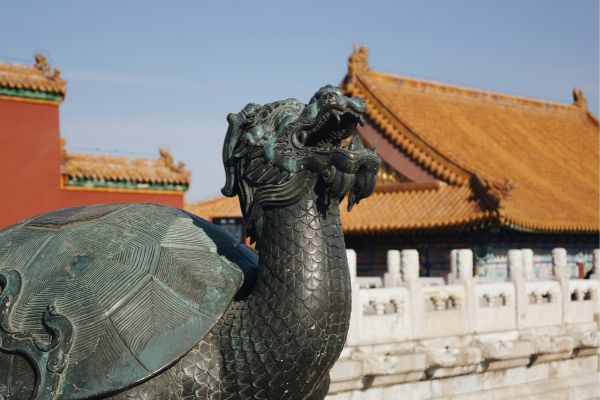
It is illegal to fire someone for being transgender, says a Beijing court. Being one of the few reported LGBTQ cases in China, this is the first court decision to our knowledge in which the legitimate rights of transgender workers are protected.
In Beijing Dangdang Information Technology Co. Ltd. v. Gao, (2019) Jing 0101 Min Chu No. 5075, (2019) Jing 02 Min Zhong No. 11084, the case involved a transgender employee, surnamed Gao, fired from a job in Beijing Dangdang Information Technology Co., Ltd. (hereinafter “Dangdang”), one of the leading e-commerce companies in China.
When Gao asked for leave to undergo sex reassignment surgery, Dangdang fired Gao for violating the company leave policies, and filed a lawsuit with the court to confirm the termination of the employment contract. Gao, on the contrary, insisted that Dangdang should keep performing the employment contract, letting him continue working at the company.
The case went through the first and the second instance in Beijing courts, and both courts ruled that it was illegal for Dangdang to terminate the employment relationship with Gao, and Gao could continue to work with Dangdang.
As stated in the final judgment, the second-instance court held that “we respect and protect the personality, dignity and legitimate rights of transgenders”.
I. Case brief
On 16 Apr. 2018, Shanghai Mental Health Center diagnosed Gao with transsexualism, and needed a sex reassignment surgery from male to female.
On 27 June 2018, Gao asked for sick leave with Dangdang and went to Shanghai Changzheng Hospital for his surgery on the same day.
On 19 July 2018, Gao was discharged from Shanghai Changzheng Hospital, with a certificate of diagnosis suggesting him to rest for two months.
On 20 July 2018, Gao asked Dangdang for two months’ leave, which Dangdang did not approve of.
Later on, a dispute between Gao and Dangdang occurred. Dangdang, therefore, filed a lawsuit with Dongcheng District People’s Court of Beijing (hereinafter “the first-instance court”).
On 4 July 2019, the first-instance court rendered a judgment [(2019) Jing 0101 Min Chu No. 5075] [(2019)京0101民初5075号], dismissing Dangdang’s request, i.e., confirming the lawfulness of Gao’s ask for leave.
On 3 Jan. 2020, the second-instance court rendered a final judgment [(2019) Jing 02 Min Zhong No. 11084] [(2019)京02民终11084号], also confirming the lawfulness of Gao’s ask for leave, i.e., Gao can continue to work with Dangdang.
II. Court opinions
The first-instance court held that Gao underwent the surgery because of his transsexualism, which was supported by the certificate of diagnosis issued by the hospital, and therefore, Gao could take the sick leave as prescribed by law on the grounds of the aforesaid surgery.
The first-instance court further stated that:
1. Employers should promote a transgender-inclusive workplace
“In view of the diversity of diseases, the continuous development and change of the academic community and the public’s awareness of diseases, as well as individual diversity, employers should consider individual factors when reviewing employees’ sick leave. Gao’s transsexualism is one of the mental diseases, to which the psychiatry circle has not yet reached a consensus, let alone the public’s understanding thereto. Therefore, employers who have a close personal relation with employees should give more understanding and care to such employees.”
2. Employers should support transgender workers by giving them some time to adapt to society after the sex reassignment surgery
“It is an inevitable process for Gao to adapt to society by engaging in relevant social activities after the surgery, and such a process occurs during the sick leave. Therefore, the employer should be more inclusive considering the specific situation. According to the verification with the hospital by this court, the sick leave period suggested by the hospital includes not only physical recovery time, but also psychological recovery time for Gao to re-adapt to society. Therefore, Gao should not be required to return to work immediately just because he is physically capable of doing so.”
The second-instance court basically supported the views of the first-instance court and further stated that:
1. It does not necessarily result in the reduction of working competence after the change of gender.
“This court holds that the existing evidence cannot prove that Gao is incompetent for the work of Dangdang after the sex reassignment surgery. Whether Gao will be competent for the work arranged by Dangdang is subject to the further performance of the employment contract, and we should not jump to the conclusion that Gao cannot perform the employment contract before she even resumes her work.”
2. Male employees have the right to use the Lady’s Room after the change of gender.
“Dangdang also believes that the continuous performance of the employment contract will give rise to a series of problems such as Gao’s toilet choosing and other colleagues’ uncomfortableness. In this regard, this court holds that the relevant public security organ has changed Gao’s gender from male to female pursuant to the Reply on Issues concerning the Change of Citizen’s Household Registered Gender after the Sex Reassignment Surgery (关于公民手术变性后变更户口登记性别项目有关问题的批复) promulgated by the Public Security Administration Bureau of the Ministry of Public Security, and Gao has the right to use the Lady’s Room as a woman. Other colleagues should also accept Gao’s new gender and work with Gao with an inclusive mind.”
3. The society should embrace the diversity of lifestyles, respect and protect the personality, dignity, and legitimate rights of transgenders.
“Modern society presents a trend of increasing diversity. We keep finding many new things around us, and we should learn to accept these new things gradually, unless they threaten the interests of others, the collective, the state, or the public. Perhaps it is exactly our inclusiveness to new things that have laid the foundation for the long-term development of civilization and the great progress of society.”
“We are used to understanding society according to our understanding of biological gender, but there will still be some people who want to express their gender identity according to their own life experience. We need to re-examine and understand this persistent social expression. Although it will be a very long process, more and more people choose to be inclusive, and we indeed need to gradually change our attitude to such things. Because only if we embrace the diversity of lifestyles, can we have a more colorful culture and lay a cultural foundation for inclusiveness in a rule-of-law society. This may be the logic that some scholars have pointed out ‘social inclusiveness is the blessing of the rule of law’.”
“Our respect and protection to the personality, dignity and legitimate rights of transgenders are based on our cherishing of the dignity and rights of citizens, rather than advocating and promoting transsexualism.”
4. The society should respect the right to work of transgenders.
“As employees, transgenders’ rights to work should also be protected by the law. According to the provisions of the Labor Law of the People’s Republic of China (中华人民共和国劳动法) and the Employment Promotion Law of the People’s Republic of China (中华人民共和国就业促进法), employees shall enjoy the right of equal employment and choice of occupation; no discrimination against employees is allowed based on their nationality, race, gender, religious belief and the like; when employers recruit personnel and employment agencies engage in career intermediary activities, they should provide equal employment opportunities and fair employment conditions to workers, and shall not have employment discrimination. Although the above-mentioned legal provisions do not explicitly stipulate that employees may not be discriminated against because of gender change, it should be one of the implications contained therein that employees who change their gender by sex reassignment surgery and are thereafter recognized by the public security organs should enjoy the right of equal employment without discrimination.”
5. Transgenders should cherish the respect from society and be confident.
“This court also suggests that Gao should cherish the respect and protection given by society, and should not abuse her rights when safeguarding her own legitimate rights. Gao should face Dangdang with an honest and peaceful attitude and strive to achieve better results in her job.”
III. Our comments
Although LGBTQ has been a common phenomenon in China, and the public’s inclusiveness to LGBTQ is also increasing, LGBTQ cases are seldom seen in judicial practice. In this case, the court directly addressed the LGBTQ topic and resolutely protected the legitimate rights of LGBTQ, bringing great significance to the case.
Moreover, the drafting style of the two judgments in this case is also very special. Generally, Chinese judges try their best to draft judgments with prudent and impersonal wording, so as to avoid mistakes or accusations. For example, judges will usually list the relevant legal provisions with some simple reasoning, and try to avoid expressing personal opinions. In this case, however, these two judgments contain many personal opinions of the judges, which is very rare in China.
We are expecting more judgments on the protection of LGBTQ’s rights, as well as personal opinions from more Chinese judges.
Photo by Jordan McDonald (https://unsplash.com/@jordanmcdonald) on Unsplash
Contributors: Guodong Du 杜国栋 , Meng Yu 余萌









